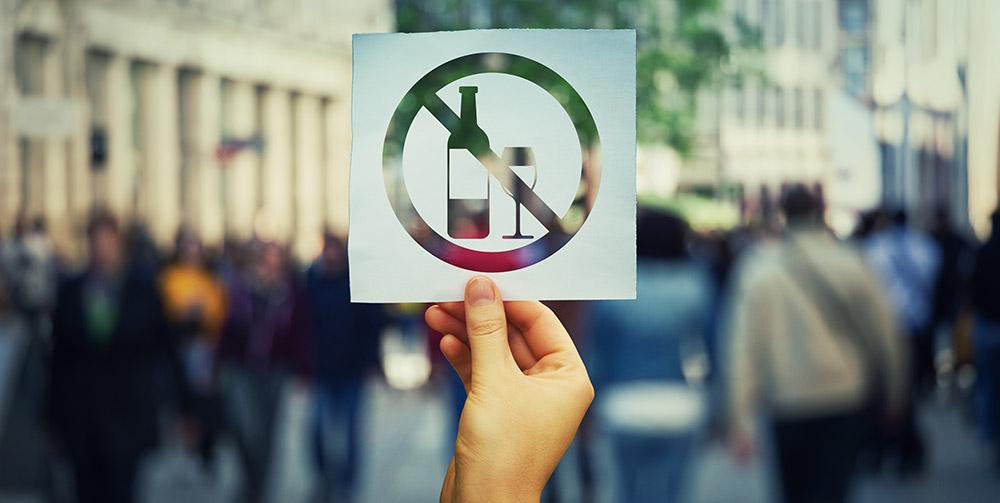The real cost of Alcohol Rehab
Reaching out for help from alcohol addiction is the first brave step you can take to regain control of your life. While the idea of sacrificing your job or your family to enter into rehab is overwhelming, the benefits certainly outweigh the costs. Rehabilitation for alcohol dependence teaches you the tools, the skills, and coping strategies that you need to overcome addiction and prevent relapse.
The cost of alcohol rehab should not prevent you from pursuing the treatment that you need. Studies have shown that drug rehab can significantly reduce the health and the social costs of addiction (NIH).
In the following guide, we look at the real cost of alcohol rehab. We explore the importance of treatment and the benefits it can provide for your health and your future.
What is Alcohol Rehab?
We certainly don’t look at our lives and our future and think about rehabilitation as being a part of our plans. It is natural to feel uncertain about what rehabilitation entails and whether the costs are worth it?
Because alcohol addiction is a disease that affects your livelihood, relationships, health, and your future, investing in a programme to help you overcome the destructive habits and the unhappiness, is simply invaluable, but what does alcohol rehab entail?
Alcohol rehab is the process of treatment provided to individuals who are diagnosed as having alcohol dependence (Rehab Guide). It consists of inpatient and outpatient services. Inpatient rehab, also known as residential rehab, requires that you remain at the residence full-time in a non-clinical environment. Outpatient programmes allow you to visit the therapist according to a weekly schedule while remaining at home.
An inpatient programme can last anywhere between 30 days all the way up to 12 months depending on your response to therapy and the severity of the addiction.
If you would like to learn more about residential rehab or would like to speak to an expert regarding the different treatment centres here in the UK, please give us a call.

What is Included in an Alcohol Rehab Programme?
In an inpatient alcohol rehab programme patients are provided unconditional support and professional medical attention from the moment they are admitted into the residence.
Detox is the first stage of alcohol rehabilitation and because its withdrawal symptoms can become so dangerous, it should be performed under professional guidance. Depending on the withdrawal, your doctor can prescribe medication to ease the symptoms and improve your comfort.
You are also provided a safe environment and a comfortable room in a residential rehab rather than stay in a hospital. Round-the-clock monitoring and support are available to help you through challenging periods including cravings. Therapists will help you learn to identify and overcome triggers responsible for relapse.
An alcohol rehab programme also includes structured therapy. You won’t have to travel to visit your therapist or be influenced by triggers in your environment, which prevent the risk of relapse.

How Long Should I Attend Alcohol Rehab?
The length of treatment will depend on individual circumstances. Treatments can range from 30 days to 60 days and even up to a year. To understand how long you should attend alcohol rehab, multiple factors must be considered from financial and employment to individual progression in therapy.
The typical stay for alcohol treatment in residential rehab is 90 days. The minimum amount of time to spend in rehabilitation programmes is 30 days but in cases of severe alcohol addiction, clients are advised on extended stays to better cope with outside demands and prevent relapse.
Treatment is different for every person and often, rehabilitation must be extended to improve the rate of progression. In instances where mental health conditions coincide with alcohol addiction, the treatment plan will be longer to improve these issues.
While we may not want to extend our time in rehab because we feel better and want to return to our regular lives, studies have shown that spending a longer period in rehab is more beneficial than the minimum 30-day requirement.
The time you dedicate to your treatment is also influenced by your health cover and your affordability. Some medical insurers will only cover a 30 to a 60-day minimum while others can include a longer duration as determined by your therapist and medical team. If you are entering private rehab, many providers will allow you to pay a deposit and cover the balance in instalments. This option makes it easier to afford your treatment.
Many alcohol rehabilitation therapists recommend at least a 12-month stay for severe alcohol dependence and misuse. Such programmes should include aftercare to assist in readjusting to life after addiction. Attending individual and group therapy sessions as scheduled by your therapist is also beneficial for recovery because it helps you overcome perceived limitations while introducing essential coping mechanisms.
Why Private Alcohol Rehab is Superior to Free Services?

Seeking rehab, whether a private or free service, is an important part of your recovery but private inpatient treatment offers much more for patients especially those with severe alcohol addiction.
Private therapy is highly individualised which means it is specifically created to address your unique circumstances. You work one-on-one with your therapist to learn new skills, tools, and ways of coping with the challenges of addiction.
In free therapy or government-funded programmes, there are more patients to one therapist and programmes are not individually developed. You will also be placed on a waiting list compared to the immediate admission you receive in private rehab.
For clients who are affected by other mental health conditions, private therapy helps address your needs on multiple levels whereas free services are restricted and may not cater to your underlying mental, emotional, and even legal problems.
Why Individuals Will Save Money in the Long Run?
Every year, the UK spends billions on alcohol-related cases. Treatment has been shown to mitigate much of the costs concerning imprisonment, hospitalization, and injuries associated with alcohol intoxication.
For those who find themselves in a difficult legal position including imprisonment, the associated costs are much more than rehabilitation. Driving under the influence or causing harm to another while intoxicated are primary reasons for arrests and trouble with the law.
Preparing for your recovery by planning your finances, your work commitments, and mental healthcare can help you save money, but it also gives you much of your life back. Don’t let alcohol dependence dictate your today, tomorrow, and your long-term future. It can be overcome with the support and value of therapy.
